Anpassungsfähigkeit und Resilienz des Finanzsystems
Diese Forschungsgruppe untersucht kritische Aspekte der Anpassungsfähigkeit und Widerstandsfähigkeit von Finanzsystemen. Sie analysiert die Auswirkungen von Naturkatastrophen auf Finanzsysteme, die Auswirkungen politischer Präferenzen für die grüne Transformation und die Bedeutung von Kultur in den Volkswirtschaften.
Forschungscluster
Finanzresilienz und RegulierungIhr Kontakt

Mitglied - Abteilung Finanzmärkte
PROJEKTE
07.2016 ‐ 12.2018
Relationship Lenders and Unorthodox Monetary Policy: Investment, Employment, and Resource Reallocation Effects
Leibniz-Gemeinschaft
We combine a number of unique and proprietary data sources to measure the impact of relationship lenders and unconventional monetary policy during and after the European sovereign debt crisis on the real economy. Establishing systematic links between different research data centers (Forschungsdatenzentren, FDZ) and central banks with detailed micro-level information on both financial and real activity is the stand-alone proposition of our proposal. The main objective is to permit the identification of causal effects, or their absence, regarding which policies were conducive to mitigate financial shocks and stimulate real economic activities, such as employment, investment, or the closure of plants.
01.2015 ‐ 12.2019
Interactions between Bank-specific Risk and Macroeconomic Performance
Deutsche Forschungsgemeinschaft (DFG)
Referierte Publikationen

Cultural Norms and Corporate Fraud: Evidence from the Volkswagen Scandal
in: Journal of Corporate Finance, October 2023
Abstract
We examine a corporate governance role of local culture via its impact on consumer behavior following corporate scandals. Our proxy for culture is the presence of local Protestantism. Exploiting the unexpected nature of the Volkswagen (VW) diesel scandal in September 2015, we show that new registrations of VW cars decline significantly in German counties with a Protestant majority following the VW scandal. Further survey evidence shows that, compared to Catholics, Protestants respond significantly more negatively to fraud but not to environmental issues. Our findings suggest that the enforcement culture in Protestantism facilitates penalizing corporate fraud.
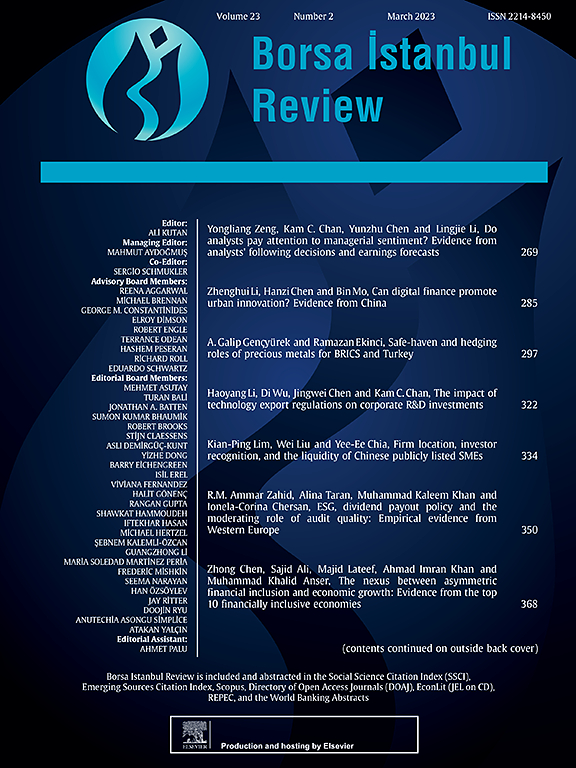
What Makes the Difference? Microfinance Versus Commercial Banks
in: Borsa Istanbul Review, Nr. 4, 2023
Abstract
We make a comparison of microfinance banks (MBs) and commercial banks (CBs) in terms of efficiency, business orientation, stability, and asset quality by analyzing a large sample of banks from 60 countries around the world. Our findings indicate that microfinance banks have higher intermediation, non-interest income, wholesale funding and liquidity, but lower efficiency and asset quality. These significant variations are influenced by smaller microfinance banks and are driven mostly to African and Latin American microfinance banks.
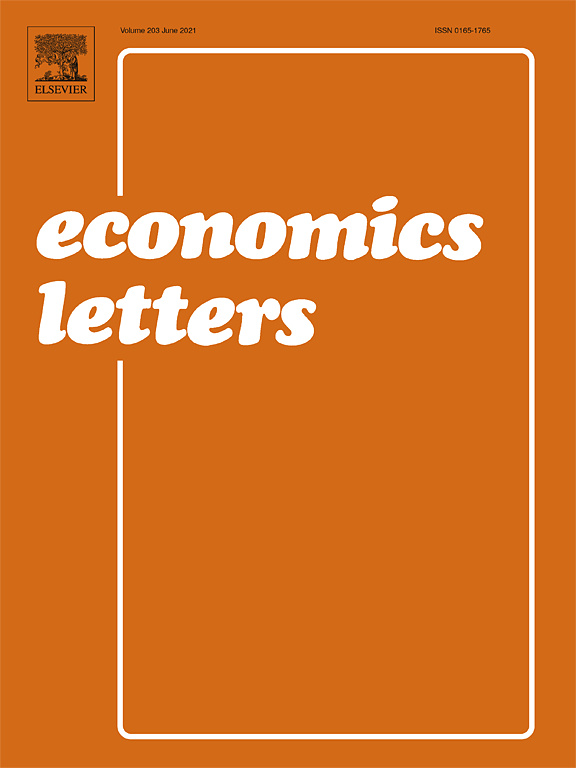
Political Ties and the Yield Curve
in: Economics Letters, July 2023
Abstract
We examine the effect of political ties with the US on sovereign yields and ratings at various horizons. We find beneficial effects across both short- and long-term yields and ratings. Specifically, we find that stronger political ties with the US affect mainly the level of the yield curve of foreign sovereign bonds. These results imply that the market perceives political ties with the US as having both near- and long-term beneficial consequences.
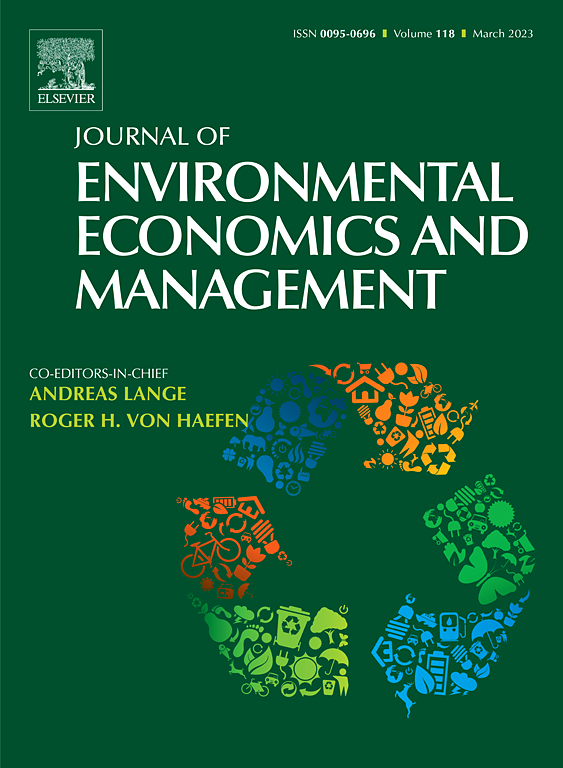
Natural Disasters and Bank Stability: Evidence from the U.S. Financial System
in: Journal of Environmental Economics and Management, May 2023
Abstract
We show that weather-related natural disasters in the United States significantly weaken the financial stability of banks with business activities in affected regions. This is reflected in higher probabilities of default, lower z-scores, higher non-performing assets ratios, higher foreclosure ratios, lower returns on assets and lower equity ratios of affected banks in the years following a natural disaster. The effects are economically relevant and highlight the financial vulnerability of banks and their borrowers despite insurances and public aid programs.
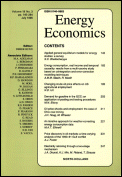
The Impact of Lowering Carbon Emissions on Corporate Labour Investment: A Quasi-Natural Experiment
in: Energy Economics, May 2023
Abstract
We examine the impact of low-carbon city (LCC) initiatives on labour investment decisions (quantity, quality, and well-being). Using a time-varying difference-in-differences approach based on staggered implementations of such a pilot program, we report an inefficient outcome - absolute deviation of labour investment from the optimal net hiring – especially for firms in labour-intensive industries and firms with high financial slack or adjustment costs. We, however, observe increased investments in highly skilled personnel and compensated with employee stock ownership, especially by firms under intense pressure to reduce carbon emissions. Such initiatives are also closely associated with the significant enhancement of workplace safety. Overall, LCC helps to upgrade the corporate labour structure by hiring more skilled employees through reduced agency problems and heightened green innovation.
Arbeitspapiere
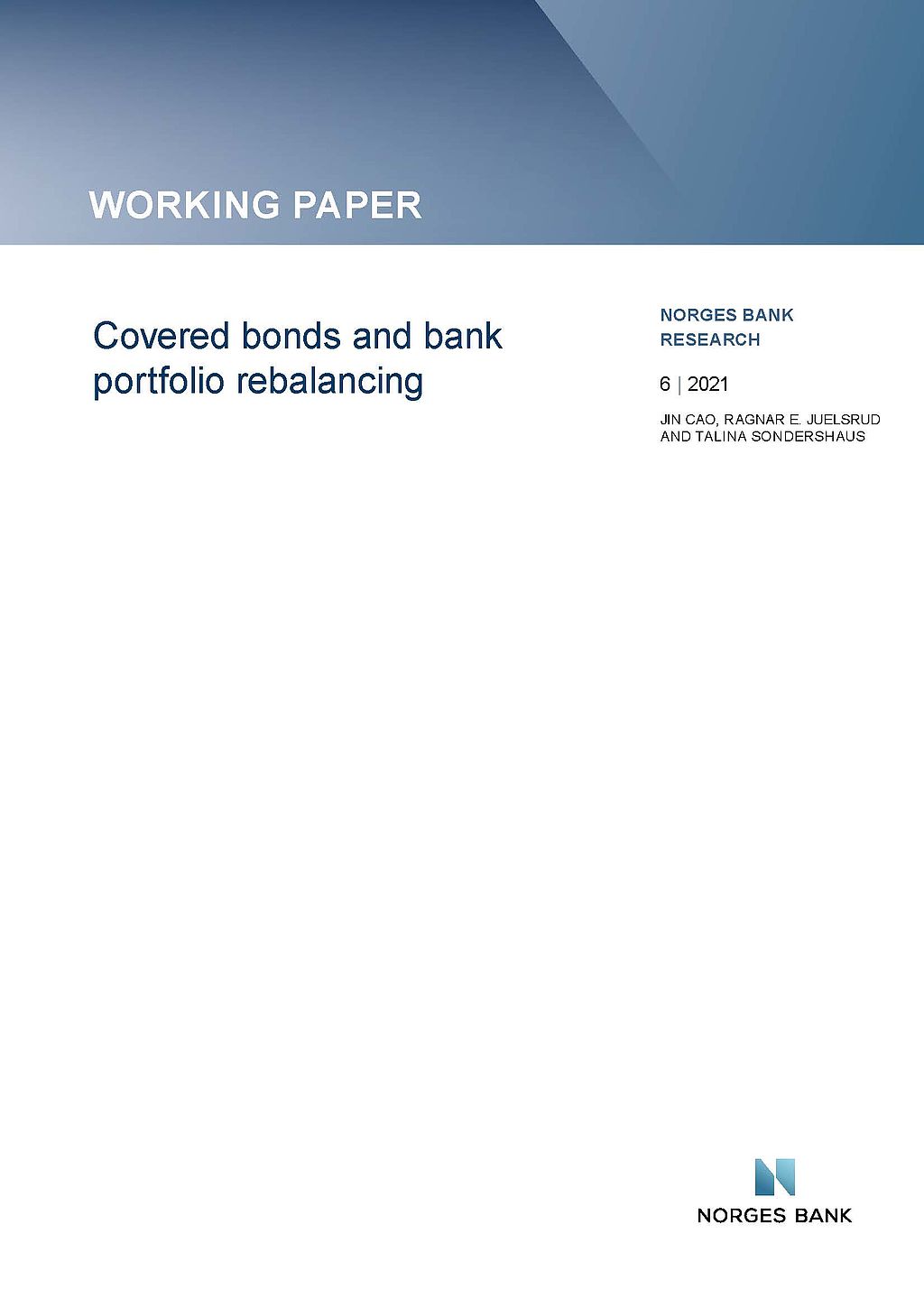
Covered Bonds and Bank Portfolio Rebalancing
in: Norges Bank Working Papers, Nr. 6, 2021
Abstract
We use administrative and supervisory data at the bank and loan level to investigate the impact of the introduction of covered bonds on the composition of bank balance sheets and bank risk. Covered bonds, despite being collateralized by mortgages, lead to a shift in bank lending from mortgages to corporate loans. Young and low-rated firms in particular receive more credit, suggesting that overall credit risk increases. At the same time, we find that total balance sheet liquidity increases. We identify the channel in a theoretical model and provide empirical evidence: Banks with low initial liquidity and banks with sufficiently high risk-adjusted return on firm lending drive the results.
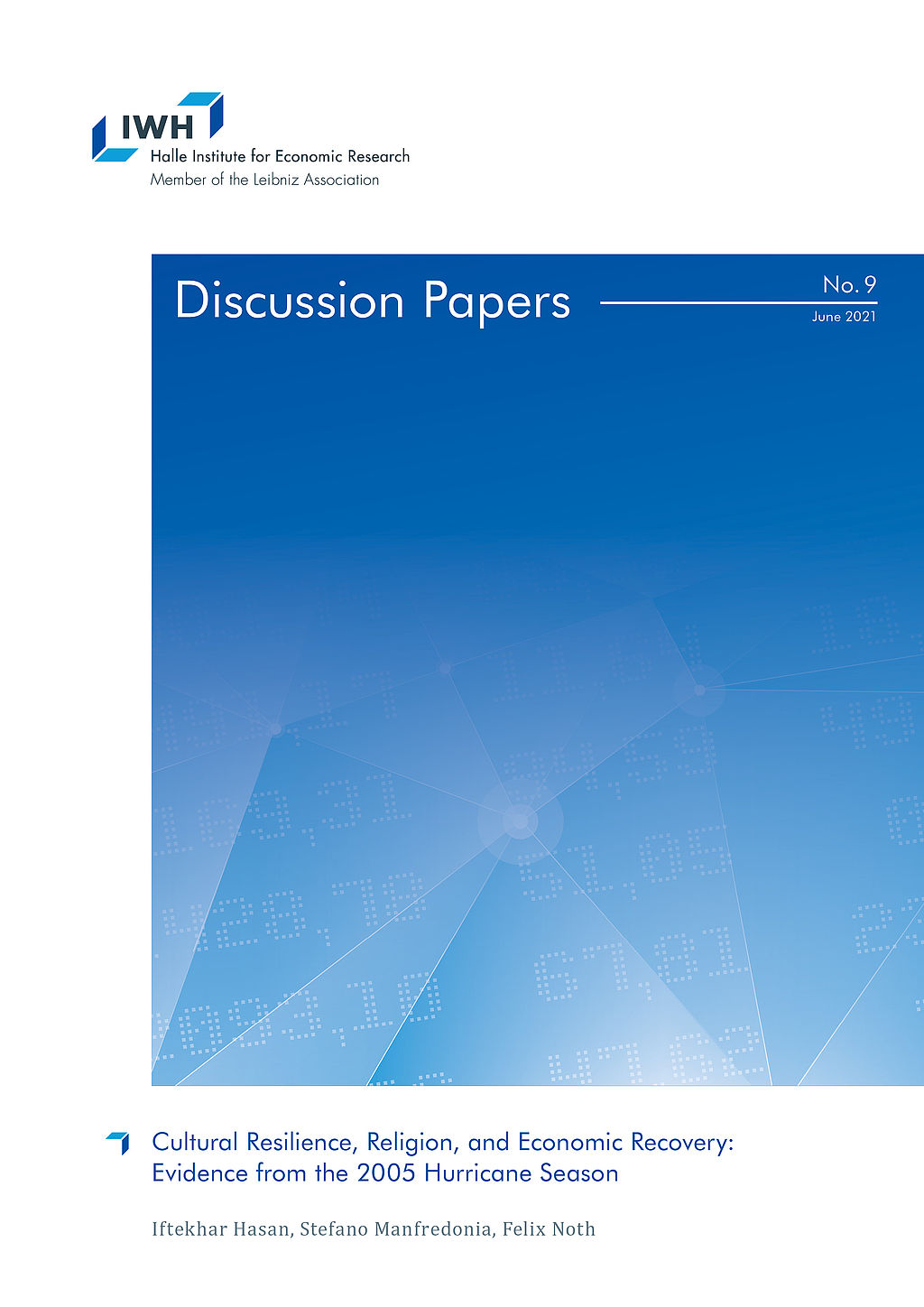
Cultural Resilience, Religion, and Economic Recovery: Evidence from the 2005 Hurricane Season
in: IWH Discussion Papers, Nr. 9, 2021
Abstract
This paper investigates the critical role of religion in the economic recovery after high-impact natural disasters. Exploiting the 2005 hurricane season in the southeast United States, we document that establishments in counties with higher religious adherence rates saw a significantly stronger recovery in terms of productivity for 2005-2010. Our results further suggest that a particular religious denomination does not drive the effect. We observe that different aspects of religion, such as adherence, shared experiences from ancestors, and institutionalised features, all drive the effect on recovery. Our results matter since they underline the importance of cultural characteristics like religion during and after economic crises.
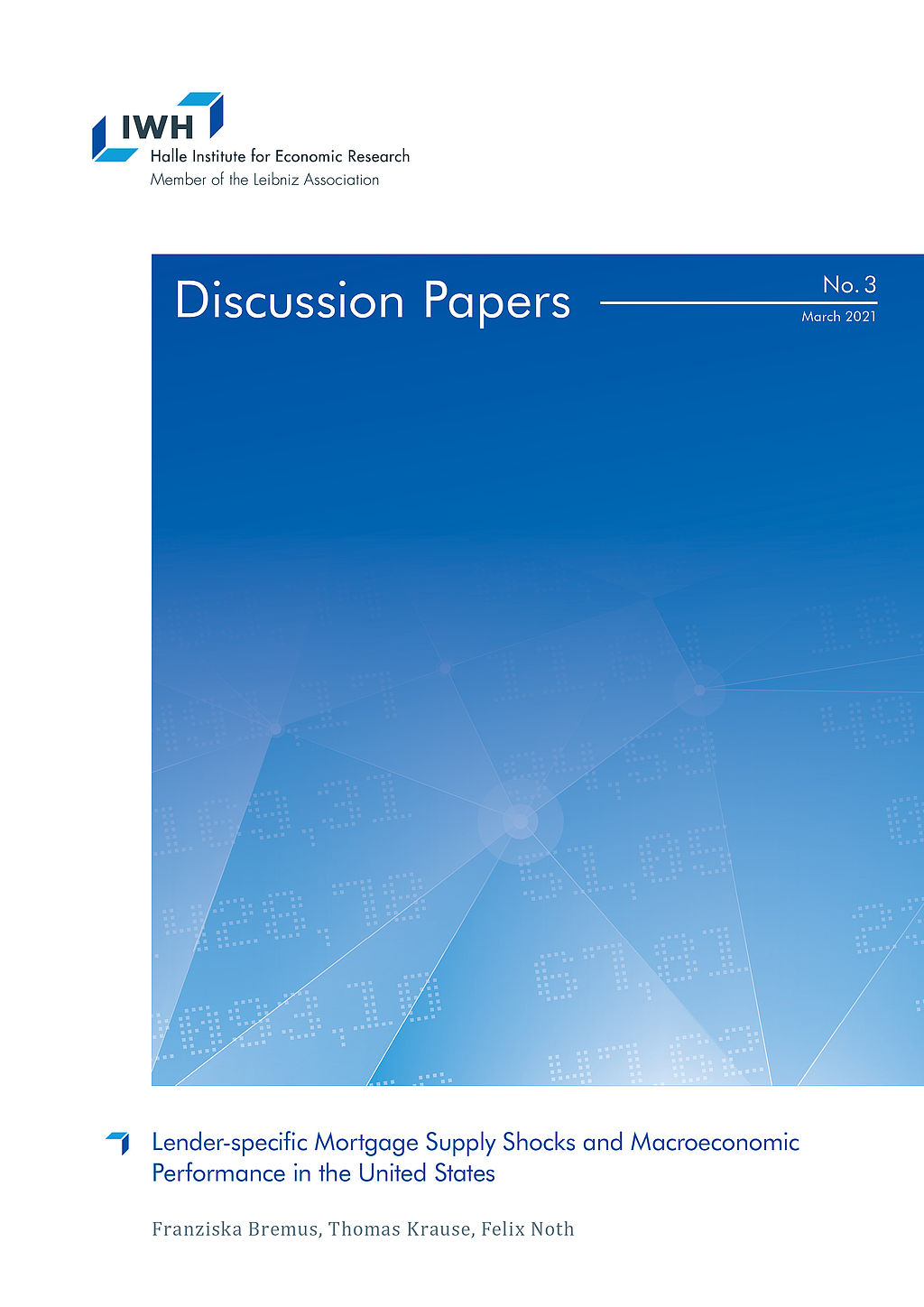
Lender-specific Mortgage Supply Shocks and Macroeconomic Performance in the United States
in: IWH Discussion Papers, Nr. 3, 2021
Abstract
This paper provides evidence for the propagation of idiosyncratic mortgage supply shocks to the macroeconomy. Based on micro-level data from the Home Mortgage Disclosure Act for the 1990-2016 period, our results suggest that lender-specific mortgage supply shocks affect aggregate mortgage, house price, and employment dynamics at the regional level. The larger the idiosyncratic shocks to newly issued mortgages, the stronger are mortgage, house price, and employment growth. While shocks at the level of shadow banks significantly affect mortgage and house price dynamics, too, they do not matter much for employment.
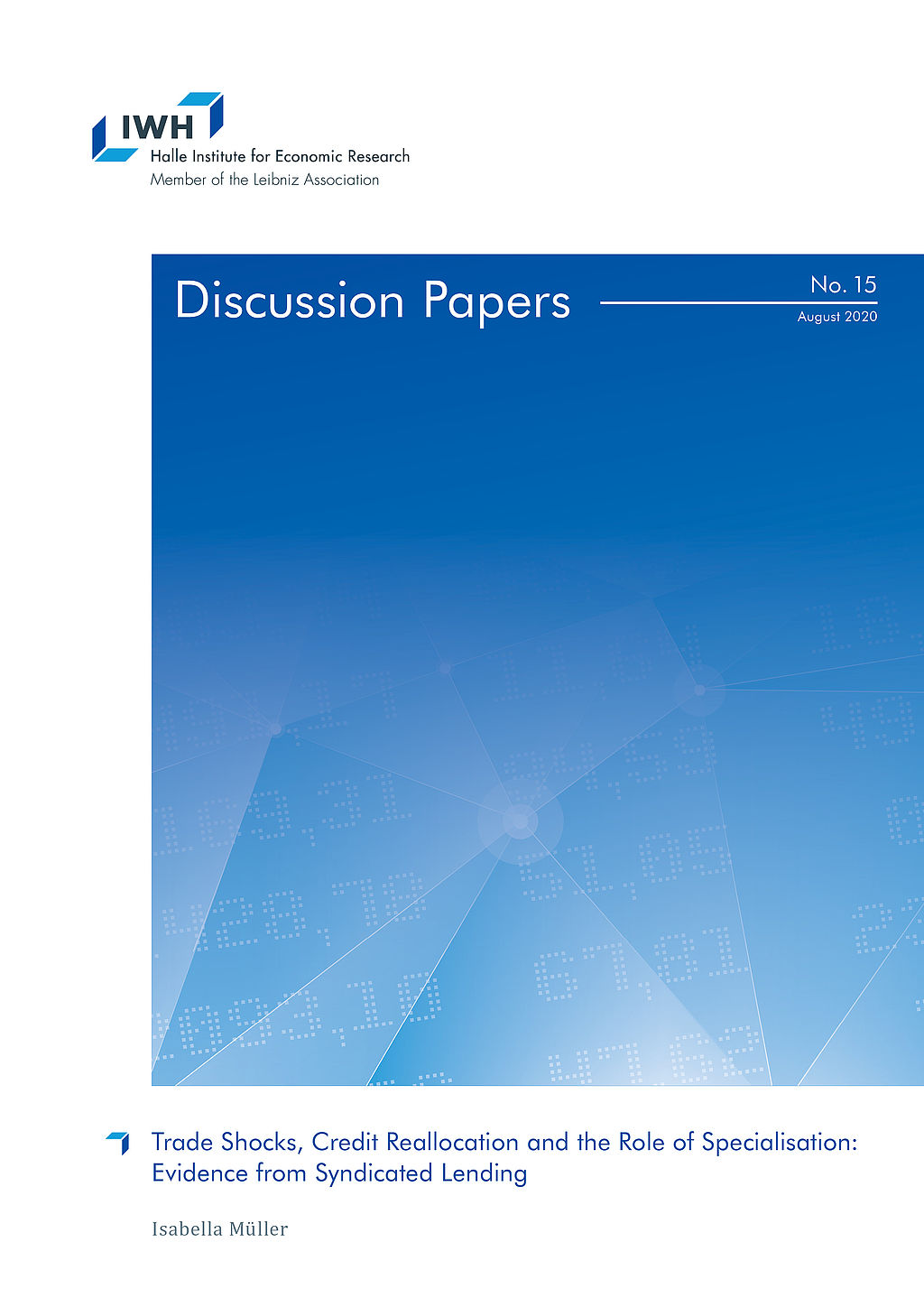
Trade Shocks, Credit Reallocation and the Role of Specialisation: Evidence from Syndicated Lending
in: IWH Discussion Papers, Nr. 15, 2020
Abstract
This paper provides evidence that banks cut lending to US borrowers as a consequence of a trade shock. This adverse reaction is stronger for banks with higher ex-ante lending to US industries hit by the trade shock. Importantly, I document large heterogeneity in banks‘ reaction depending on their sectoral specialisation. Banks shield industries in which they are specialised in and at the same time reduce the availability of credit to industries they are not specialised in. The latter is driven by low-capital banks and lending to firms that are themselves hit by the trade shock. Banks‘ adjustments have adverse real effects.
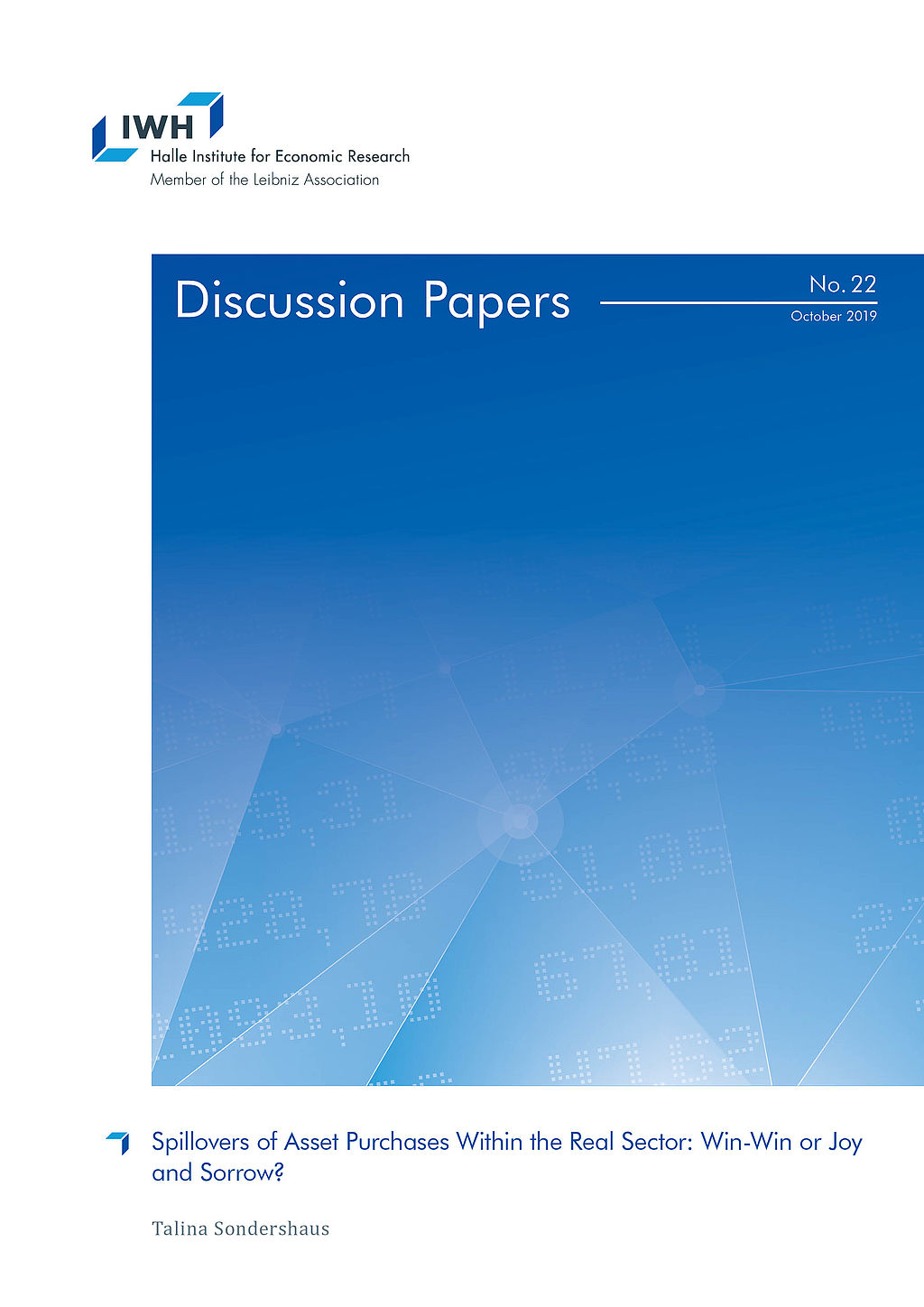
Spillovers of Asset Purchases Within the Real Sector: Win-Win or Joy and Sorrow?
in: IWH Discussion Papers, Nr. 22, 2019
Abstract
Events which have an adverse or positive effect on some firms can disseminate through the economy to firms which are not directly affected. By exploiting the first large sovereign bond purchase programme of the ECB, this paper investigates whether more lending to some firms spill over to firms in the surroundings of direct beneficiaries. Firms operating in the same industry and region invest less and reduce employment. The paper shows the importance to consider spillover effects when assessing unconventional monetary policies: Differences between treatment and control groups can be entirely attributed to negative effects on the control group.


















